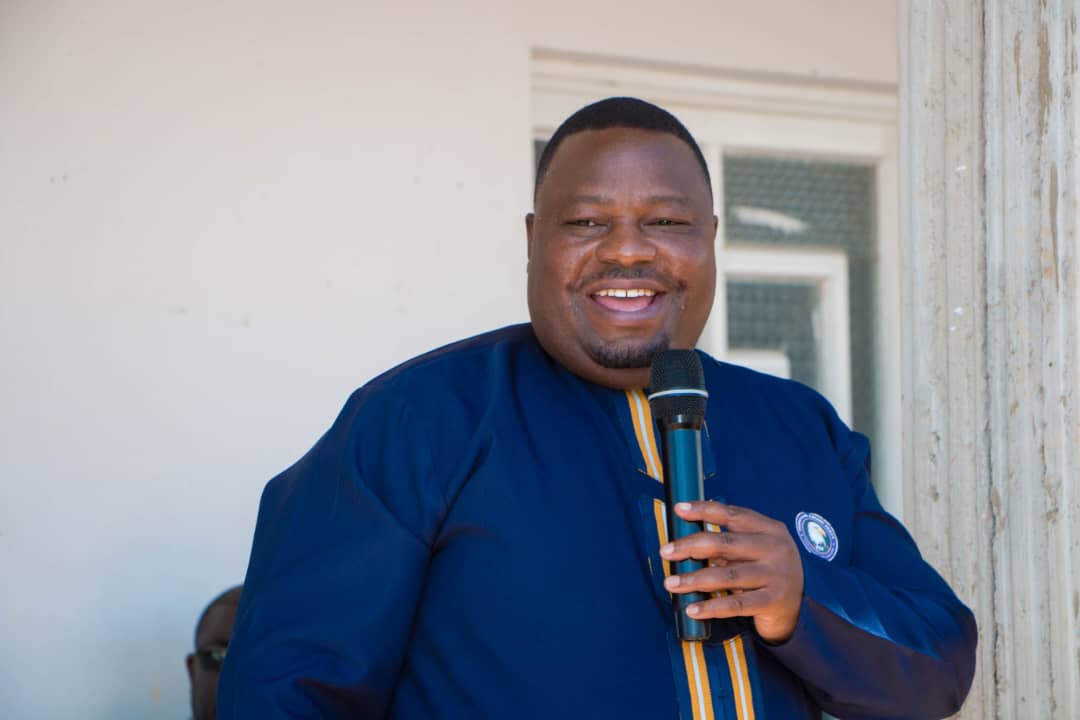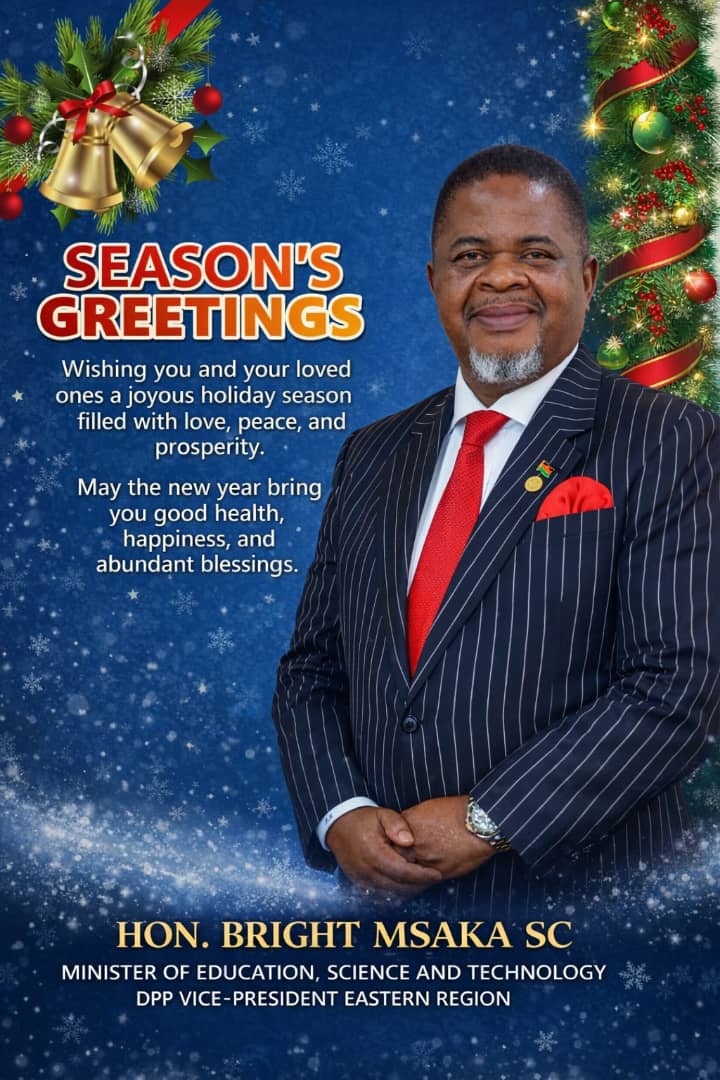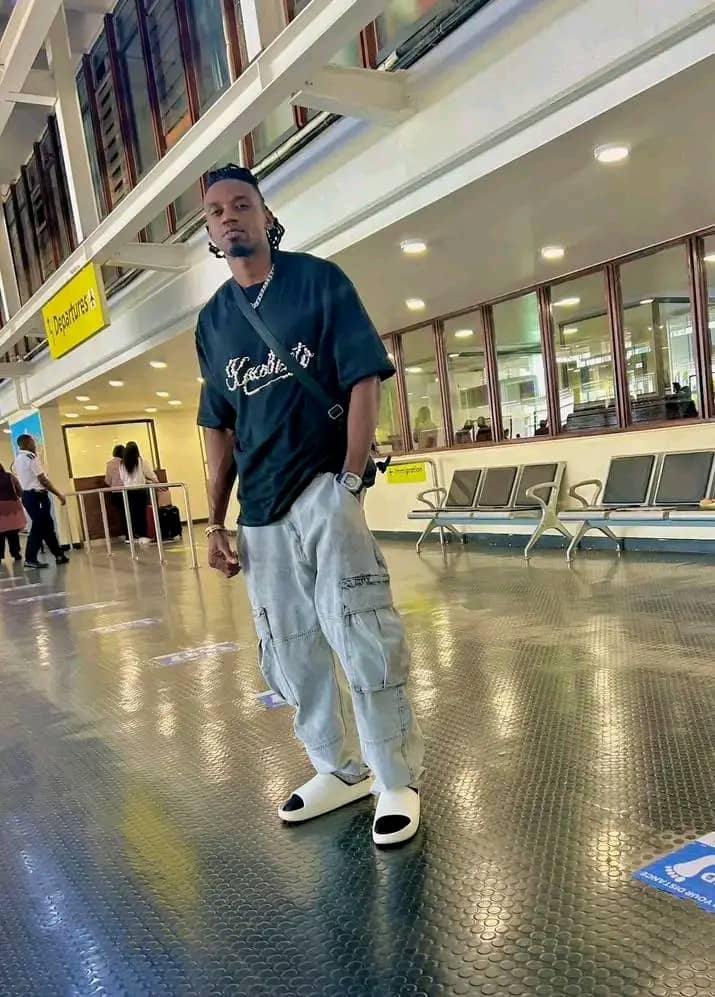By Gift Bennie Nkolokosa
That defining moment is upon us yet again, the moment when Parliament either makes or breaks. It is the moment that will shape the character and conscience of Malawi’s legislature for the next five years — the way it will make laws, exercise oversight, and conduct the people’s business.
At the heart of this defining moment lies one pivotal decision: the election of the Speaker of the National Assembly. When Parliament convenes on the 29th of this month for the first time since the September 16 elections, its most consequential business of the day will not be about motions or bills, but about leadership — choosing the one who will preside over the House as the Head of the Legislature.
This choice will not merely determine who wields the gavel; it will define the tone, temperament, and integrity of the next session of Parliament. It will determine whether the House becomes a true engine of democracy or a theatre of partisan warfare.
Several names have now emerged — each bringing their own experience, temperament, and claim to the high seat. But who among them truly embodies the balance, diplomacy, and authority that the office demands? Who among them can rise above party lines to guide the House with fairness and decorum?
THE CANDIDATES
President Professor Arthur Peter Mutharika, leading the newly elected ruling Democratic Progressive Party (DPP), has nominated Sameer Suleman, Member of Parliament for Blantyre City South East, as the party’s choice for the coveted position. Meanwhile, the Malawi Congress Party (MCP) — the former ruling party — appears inclined to back the return of Catherine Gotani Hara, who successfully defended her Mzimba North East seat in the September 16 elections and previously made history as Malawi’s first female Speaker.
Adding a compelling twist to the contest is Dr. Kondwani Nankhumwa, President of the People’s Development Party (PDP) and Member of Parliament for Mulanje Central, whose declaration to run introduces a new dimension — one that merges experience, reformist energy, and an independent streak. Together, these contenders bring to the table not only their political parties but also their distinct personalities and philosophies of leadership.
What is beyond doubt, however, is that by the close of business on October 29, the Malawi National Assembly will have elected its new Speaker — the individual who will shape the tone, order, and integrity of Parliament for the next five years.
SAMEER SULEMAN: SO NEAR, YET SO FAR?
To the casual observer, Sameer Suleman’s path to the Speaker’s chair may appear a foregone conclusion. After all, he carries the endorsement of President Mutharika — arguably the most popular political figure in Malawi at the moment — and represents the ruling party, which commands a comfortable majority of more than 80 Members of Parliament. On paper, Suleman should simply stroll into the Speaker’s office. Indeed, social media has already been awash with congratulatory messages, as though the race were over before it even began.
However, those who take a broader, more analytical view of Malawi’s political landscape know that things are rarely that simple. Yes, MPs elect the Speaker, and many often follow party directives — but not all. Parliament still has members of independent mind; MPs who weigh character, integrity, and temperament before casting their vote. And it is precisely here where Sameer Suleman’s weaknesses begin to surface.
Suleman has over time built a reputation for being abrasive, impulsive, and confrontational — traits that run counter to the very essence of the Speakership, a position that demands calmness, restraint, and impartial judgment. In the past five years alone, he has been at the center of several heated exchanges in the chamber, clashing not just with opposition legislators but also with members from his own party. Many of those same MPs are returning to Parliament — and memories in politics can be long.
There is also growing concern over how his nomination was communicated. Reports indicate that it was announced by the DPP Secretary General, Peter Mukhito, who himself did not win a parliamentary seat. This raises questions about whether MPs were personally consulted or simply “informed.” History has shown that legislators often resist being dictated to by party officials outside the House — especially in moments like this, when votes are cast by secret ballot. Suleman, therefore, finds himself in a delicate position: he has proximity to power, but lacks the subtle political finesse required to convert that proximity into victory. As things stand, his candidacy may end up being a classic case of “so near, yet so far.”
CATHERINE GOTANI HARA
Catherine Gotani Hara enters the race with the advantage of experience and precedent. She is not only the immediate former Speaker of the National Assembly but also the first woman to have ever occupied the position since the dawn of multiparty democracy in Malawi — a feat that etched her name in the nation’s political history.
As Speaker, she redefined the tone and temperament of parliamentary leadership, combining calm authority with inclusivity and procedural command. Her ability to steady the chamber in moments of heated debate earned her wide respect across the political spectrum, even from some of her fiercest critics.
To her admirers, Hara strengthened parliamentary oversight, promoted equal participation from both sides of the aisle, and elevated the legislature’s credibility in the eyes of the public. Her leadership inspired many young women to believe that high office was within reach. Yet, her tenure was not without blemish. Some Members of Parliament accused her of bias towards MCP legislators, arguing that her impartiality occasionally gave way to party loyalty.
There were also claims that she abused her office by taking numerous foreign trips, particularly during her campaign for the Inter-Parliamentary Union (IPU) presidency in 2024 — a bid that reportedly cost Parliament over K1 billion in travel expenses but ultimately ended in defeat to Tanzania’s Dr. Tulia Ackson. Ironically, some of her most vocal critics in that controversy included Sameer Suleman, now one of her rivals for the Speaker’s chair.
Adding to her challenges is the psychological disadvantage of her political identity. Hara represents the Malawi Congress Party (MCP), which, following its electoral defeat, is currently viewed as politically unfashionable. Moreover, her relationship with the MCP hierarchy has been strained since President Lazarus Chakwera bypassed her in favor of Vitumbiko Mumba as his running mate ahead of the September 16 election. Following that political blow, Hara disappeared from the public stage — reportedly retreating to the United Kingdom for a self-imposed hiatus from active party politics. For some MPs still loyal to Chakwera this may be viewed the wrong way.
KONDWANI NANKHUMWA
Dr. Kondwani Nankhumwa enters the race as a sleek and subtle campaigner, an open book whose style contrasts sharply with the more abrasive approaches of his competitors. He brings a wealth of experience, having held numerous key positions in both government and Parliament, culminating in his tenure as Leader of the Opposition.
Nankhumwa may appear numerically disadvantaged, but his enduring respect and influence among many parliamentarians, including independents and some DPP members whom he led during his breakaway days from DPP, and through his time as Leader of the House and Leader of the Opposition. Soft-spoken, composed, and consistently prioritizing dialogue over conflict, Nankhumwa embodies mature and principled politics, often weighing issues on the scale of national importance rather than partisan point-scoring.
During his time as Leader of the Opposition, he was sometimes accused of being soft on the MCP government, to which he consistently responded, “I do not oppose for the sake of opposing; my first loyalty is to the people.”
This philosophy underscores his capacity for balanced, fair, and inclusive leadership — qualities essential for the role of Speaker. Ultimately, the final decision rests with Members of Parliament, who are independent thinkers capable of exercising discretion in the interests of their constituents. The ball is firmly in their court, and Nankhumwa’s calm, principled, and experienced approach positions him as a candidate capable of commanding respect and fostering unity in the House.
Disclaimer: The author is a social and political commentator who is writing in his personal capacity




